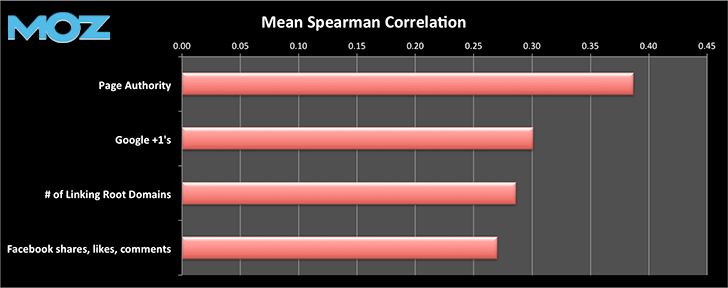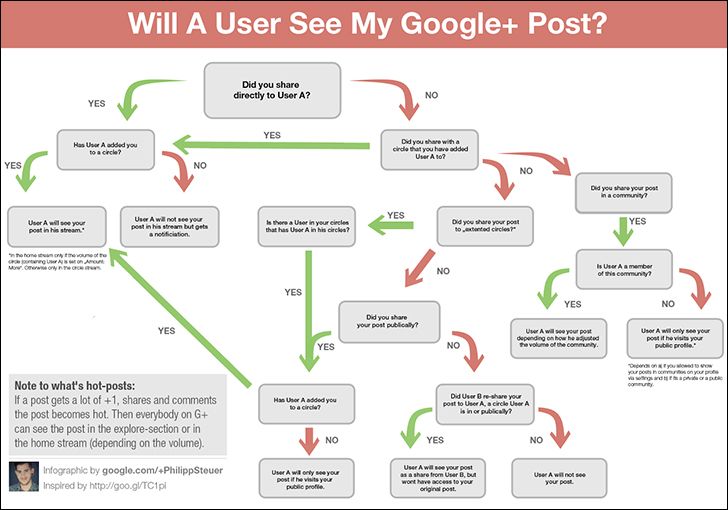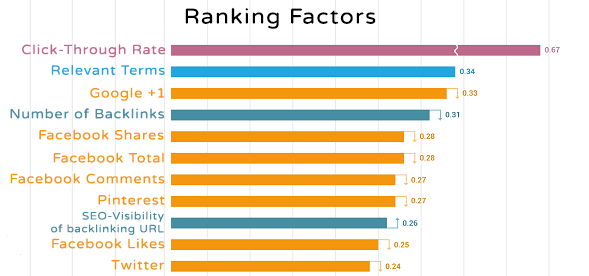Google +1’s, The One “Favoriting” Metric to Rule Them All
The big three “I really think this page is awesome” type of metrics are Facebook’s “like”, Twitter’s “favorite”, and Google’s “+1”. There is strong evidence that Facebook and Twitter’s favoriting mechanisms do not matter, while Google’s does. Find out why this is the case as we delve into this issue below.
Let’s make a distinction between this “user loves a page so they give it a vote” type of behavior, with other social-driven metrics. There are many types of social signals. Those would be links, shares, retweets, how many followers an account has (indicating how popular that author is), and then the “hey, your page is cool” type of upvote. When it comes to Facebook and Twitter, links, shares and retweets absolutely do have an impact on search engine results. However, Facebooks “like”, and Twitter’s “favorite”, do not, or at least that is the case according to a 2014 video from Matt Cutts.
It makes total sense that Google would not consider the importance of Facebook likes, or Twitter’s favorites,because Google has no way to verify the legitimacy of these statistics. Likes and favorites can be purchased. Google has no way of making a determination of whether your page’s 1000 Facebook likes came from legitimate sources or were perhaps purchased spam. However, Google does have those statistics when it comes to Google +1s.
The video cited above makes some arguments as to why Google does not consider Facebook or Twitter metrics as being important. Following are some of Matt’s arguments:
If something occurs on Twitter, or it occurs on Facebook, and we’re able to crawl it, then we can return that in our search results. But as far as doing special, specific work to sort of say, “Oh, you have this many followers on Twitter, or this many likes on Facebook”, to the best of my knowledge we don’t currently have any signals like that in our websearch ranking algorithms. And let me talk a little bit about why not. We have to crawl the web in order to find pages on those two web properties. We’ve had at least one experience where we were blocked from crawling for about a month and a half. And so, the idea of doing a lot of special engineering work to try to extract some data from webpages, when we might get blocked from being able to crawl those web pages in the future, is something where the engineers would be a little weary about doing that.
The point Matt was making is that Google could get blocked from reading Facebook and Twitter could lead to problems. Certainly, the number of likes or favorites a page has are purely numbers, and Google cannot verify how authoritative those accounts are. These are not problems with Google’s +1s. When a page receives Google +1’s, Google is well able to determine the source of each and every +1, and to know how authoritative those Google +1’s should be.
Furthermore, everything about a Google+ account, from who it’s followers are, how authoritative that account should be, the posts made through Google+, the +1’s, every aspect is available to Google in real time. The case for using +1’s as a ranking metric is a strong one, because Google can actually verify whether those +1’s are legitimate.
The Amazing Correlation Between Google +1’s and High Rankings

Moz showed an “amazing” correlation between Google +1’s and high rankings. In fact, according to Moz — the second most important ranking factor, after Page Rank, is Google +1. Then there was a huge controversy regarding whether this was causation or correlation. Causation would be “The page got a +1, therefore, it ranked well.” Correlation would be “The page was great, therefore it got linked to and shared on Google +1. The Google +1 was a side effect of the page being good enough to also get links.
The conclusion was that, whenever someone makes a +1, this is also typically accompanied by that page getting shared on an individual’s Google+ feed. These Google+ feeds are extremely authoritative and pass a huge amount of authority, when Google is aware of who the author is and whether they are credible. Therefore, it isn’t the direct fact that a page was +1’ed, rather the side-effect of the page was also shared on the Google+ feed. Google is all about the links.
So then, a page receiving 1000 “likes” on Facebook does not typically result in 1000 shares. The same can be said of Twitter, 1000 favorites is not the same as 1000 retweets. However, with Google+, 1000 +1’s typically does mean around 1000 links in users Google+ feeds.

Therefore, depending on the authority of the accounts that do the +1’s that result in the Google+ feed link shares, a page can receive an overwhelming amount of link juice based on the originating +1. This makes +1’s the “one favoriting signal to rule them all”.
With Facebook and Twitter, they do have direct linking, and shares or retweets. These are equally beneficial for SEO. However, the “likes” and “favorites” are not tied to that equation with F and T.
What is the takeaway you can receive from this? If you were to focus on only one “favoriting” type of metric, it makes sense that this would be from Google+. Forcing someone to like a page through Facebook (with “like this page to continue” scripts), may do nothing for SEO because it does not result into a share on someone’s Facebook feed. Getting someone to like via Google+ typically always results in a share in their Google+ feed, so it makes sense to increase Google+ shares. It would also be a good idea to get more involved with Google+. By sharing more information there, networking with others and getting into people’s circles, you will get your data shared on people’s Google+ feeds far more often.


Comments